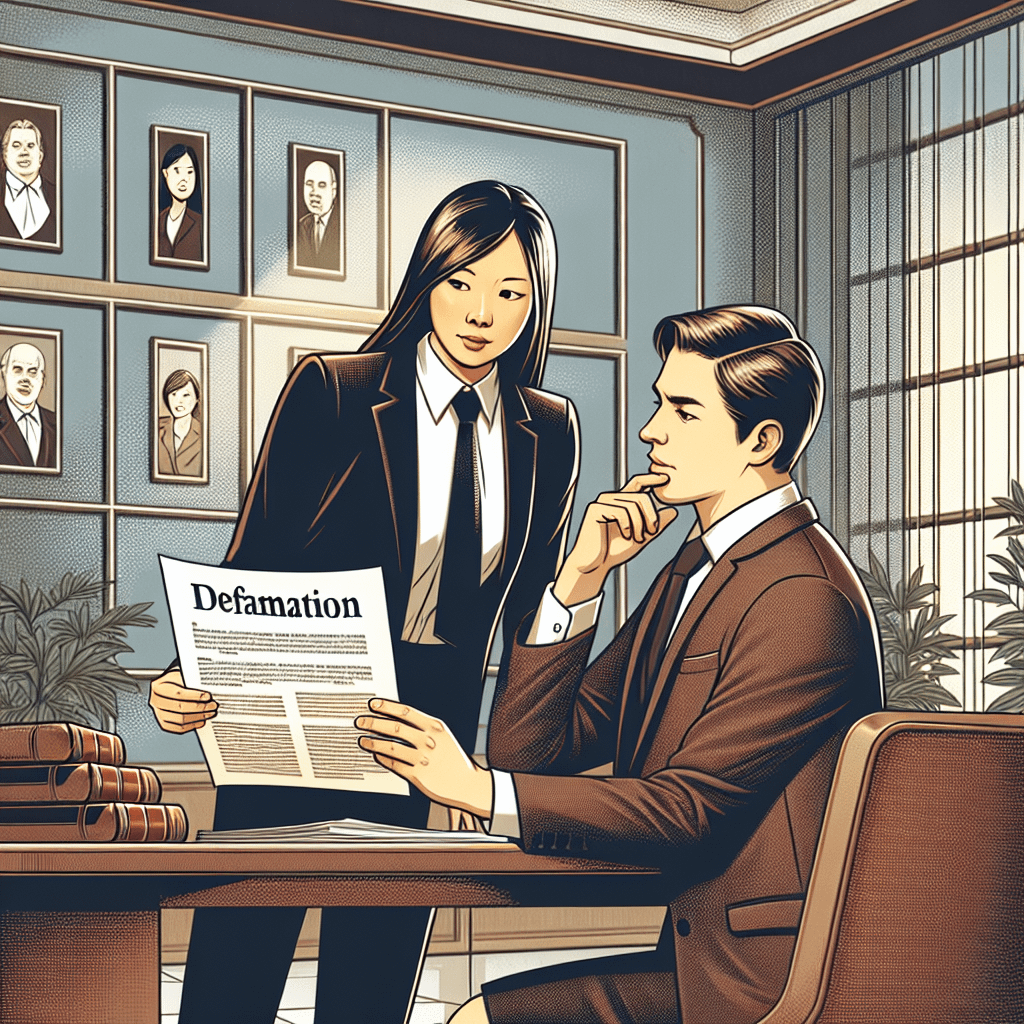In today’s digital age, it’s all too easy for harmful rumors to spread like wildfire online. If you’ve been the target of false claims on the internet, you might be wondering: can you sue for defamation? Let’s break it down, step by step, to see when and how legal action might be an option for you.
Understanding Defamation
First, let’s clarify what defamation is. Defamation occurs when someone makes a false statement about you that harms your reputation. This can happen in the form of libel, which is written defamation (like an online post), or slander, which is spoken. To make a case for defamation, the statement must be communicated to others—so it’s not just an in-your-head worry, but something that was publicly shared.
The Elements of a Defamation Case
For a defamation lawsuit, several elements usually need to be proven:
1. False Statement: The claim must be false. Sharing hurtful truths, while distressing, doesn’t qualify as defamation. 2. Published Statement: The statement must be made publicly. A private conversation typically doesn’t meet this criterion. 3. Injury: You need to show that the statement caused harm—maybe it damaged your business reputation, got you fired, or caused emotional distress. 4. Fault: Typically, you must prove that the person spreading the rumor was at least negligent regarding the truth. If you’re a public figure, the standard is higher, and you must show that the statement was made with “actual malice,” meaning the person knew it was false or acted with reckless disregard for the truth.
Common Situations and Examples
Imagine your neighbor posts on social media claiming you’re embezzling funds from your job. If false, this could be a damaging statement, potentially leading to public scorn or even the loss of your job. That meets several key criteria: it’s a written (libelous) statement, it can harm your professional reputation, and it was shared publicly.
In another scenario, a former friend might claim in a Facebook rant that you’ve been to rehab, ostensibly damaging your social standing. If untrue and resulting in emotional distress or social ostracization, this could similarly lay the foundation for a defamation claim.
Defenses Against Defamation
Before you file a lawsuit, understand that the accused has potential defenses available:
- Truth: If the statement is true, it’s a complete defense against defamation.
- Opinion: Statements that are clearly opinions can’t typically be proved false, such as saying, “I think he’s dishonest.”
- Privilege: Some statements made in certain contexts, like courtrooms, are protected by absolute privilege and can’t be the basis of a defamation claim.
Steps to Take if You’re Considering a Lawsuit
1. Document Everything: Take screenshots or save posts and messages—preserving evidence is crucial. 2. Consult an Attorney: A lawyer specializing in defamation can help assess the strength of your case and guide you through the legal process. 3. Consider the Cost: Litigation can be expensive and time-consuming. Weigh the potential benefit against the cost, including emotional toll and legal fees.
4. Cease and Desist: Sometimes, sending a formal cease-and-desist letter through an attorney can stop the defamatory remarks without going to court.
Practical Tips
Stay calm and approach the situation logically. Consider speaking to the person directly, if safe, to ask them to remove the content. Often, people don’t realize the harm they’re doing. If that doesn’t work, and your reputation or mental well-being is suffering, legal action might be necessary.
While social media might feel like the Wild West of communication, there are ways to challenge and address false statements legally. Knowing your rights and options can empower you to take back control of your reputation. Always remember, consulting with a legal professional is key to navigating the complexities of defamation law.








